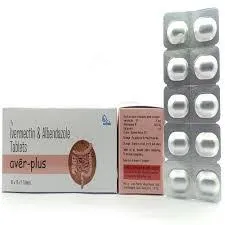- Afrikaans
- Albanian
- Amharic
- Arabic
- Armenian
- Azerbaijani
- Basque
- Belarusian
- Bengali
- Bosnian
- Bulgarian
- Catalan
- Cebuano
- Corsican
- Croatian
- Czech
- Danish
- Dutch
- English
- Esperanto
- Estonian
- Finnish
- French
- Frisian
- Galician
- Georgian
- German
- Greek
- Gujarati
- Haitian Creole
- hausa
- hawaiian
- Hebrew
- Hindi
- Miao
- Hungarian
- Icelandic
- igbo
- Indonesian
- irish
- Italian
- Japanese
- Javanese
- Kannada
- kazakh
- Khmer
- Rwandese
- Korean
- Kurdish
- Kyrgyz
- Lao
- Latin
- Latvian
- Lithuanian
- Luxembourgish
- Macedonian
- Malgashi
- Malay
- Malayalam
- Maltese
- Maori
- Marathi
- Mongolian
- Myanmar
- Nepali
- Norwegian
- Norwegian
- Occitan
- Pashto
- Persian
- Polish
- Portuguese
- Punjabi
- Romanian
- Russian
- Samoan
- Scottish Gaelic
- Serbian
- Sesotho
- Shona
- Sindhi
- Sinhala
- Slovak
- Slovenian
- Somali
- Spanish
- Sundanese
- Swahili
- Swedish
- Tagalog
- Tajik
- Tamil
- Tatar
- Telugu
- Thai
- Turkish
- Turkmen
- Ukrainian
- Urdu
- Uighur
- Uzbek
- Vietnamese
- Welsh
- Bantu
- Yiddish
- Yoruba
- Zulu
nov . 09, 2024 00:13 Back to list
Effective Cleaning Solutions for Reptile Habitats to Ensure Safe Living Environments
Reptile Disinfectants Ensuring a Safe Environment for Your Cold-Blooded Companions
Reptiles have unique environmental and health needs that differ greatly from those of other pets like cats and dogs. Ensuring their health and well-being requires diligent care, including maintaining a clean habitat. One of the essential tools in a reptile keeper's arsenal is the use of reptile disinfectants. These specialized cleaning products are designed to eliminate harmful pathogens, parasites, and bacteria that can jeopardize your reptile's health.
The Importance of Disinfection
Reptiles are often susceptible to infections and diseases, many of which can stem from their living environment. Bacteria, fungi, and viruses may thrive in the warm and humid conditions typical of reptile enclosures. Without proper cleaning and disinfection, these pathogens can multiply, leading to serious health issues such as respiratory infections, skin diseases, and more. Consequently, regular disinfection of your reptile's habitat is vital in preventing illness.
Choosing the Right Disinfectant
When selecting a disinfectant for your reptile’s habitat, it's crucial to opt for products specifically formulated for reptiles. Not all disinfectants are safe for all pets, and some may contain harsh chemicals that can harm your reptile or disrupt their habitat. Look for reptile-safe products that are non-toxic and free of harmful substances. Many reputable brands offer disinfectants designed for use in animal environments, ensuring they are effective yet safe for your pet.
Types of Reptile Disinfectants
There are several types of disinfectants available, each with its own benefits
1. Quaternary Ammonium Compounds (Quats) These are widely used in veterinary settings due to their effectiveness against bacteria and viruses. They are generally safe for reptiles when used according to the manufacturer's instructions.
2. Hydrogen Peroxide A common household item that can effectively disinfect surfaces without leaving harmful residues. However, it’s essential to ensure the enclosure is well-ventilated and rinse thoroughly to prevent irritation.
3. Vinegar Solutions While not as potent as commercial disinfectants, vinegar has natural antimicrobial properties and can be useful for light cleaning. It’s also safe for many reptiles, but be aware that some reptiles may not tolerate vinegar well, so always test a small area first.
reptile disinfectant

4. Enzymatic Cleaners These utilize natural enzymes to break down organic material and are particularly useful for eliminating odors and stains. They are generally safe for reptiles and can be a gentler option for regular cleaning.
Proper Disinfection Techniques
To effectively disinfect your reptile's enclosure, follow these steps
1. Remove the Reptile Before cleaning, safely transfer your reptile to a secure temporary habitat.
2. Remove Substrate and Accessories Empty the enclosure of all bedding, accessories, and decorations.
3. Clean the Surfaces Use a reptile-safe disinfectant to clean all surfaces thoroughly. Be sure to follow the manufacturer's instructions regarding dilution and application.
4. Rinse and Dry After applying the disinfectant, rinse all surfaces with water to remove any residues. Allow everything to dry completely before reintroducing your reptile and their accessories.
5. Regular Maintenance Establish a regular cleaning schedule—ideally, spot clean daily and perform a thorough disinfection weekly or bi-weekly.
Conclusion
Maintaining a clean environment is fundamental to the health and happiness of your reptile. By choosing the right reptile disinfectant and employing effective cleaning practices, you can help protect your cold-blooded companions from harmful pathogens. A clean habitat not only reduces the risk of disease but also promotes the overall well-being of your reptile, allowing them to thrive in a safe and healthy environment. Remember, the health of your beloved reptile starts with you, and regular disinfection is a key component of responsible pet ownership.
-
Guide to Oxytetracycline Injection
NewsMar.27,2025
-
Guide to Colistin Sulphate
NewsMar.27,2025
-
Gentamicin Sulfate: Uses, Price, And Key Information
NewsMar.27,2025
-
Enrofloxacin Injection: Uses, Price, And Supplier Information
NewsMar.27,2025
-
Dexamethasone Sodium Phosphate Injection: Uses, Price, And Key Information
NewsMar.27,2025
-
Albendazole Tablet: Uses, Dosage, Cost, And Key Information
NewsMar.27,2025













